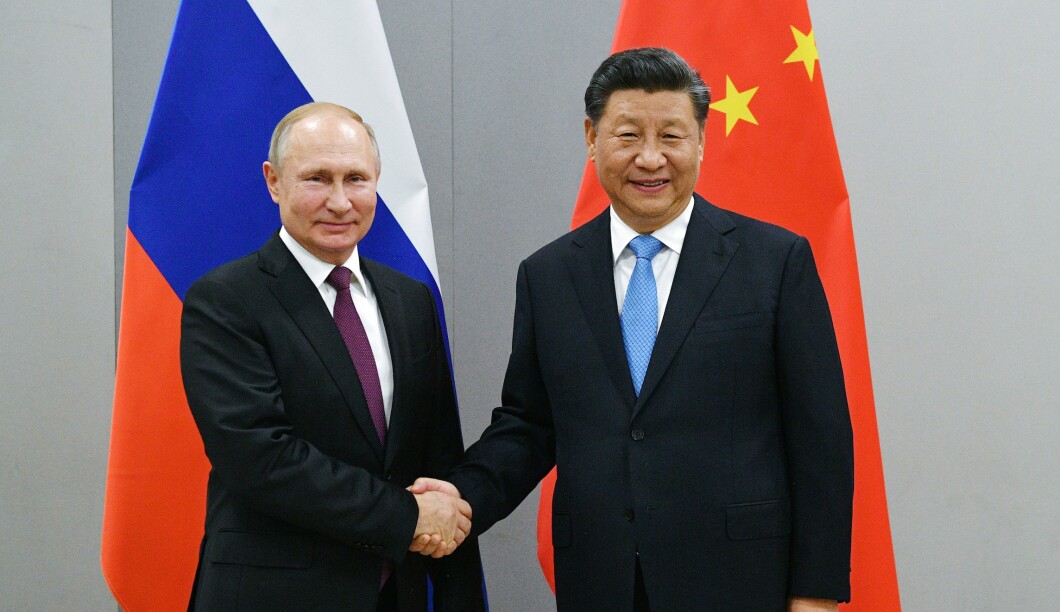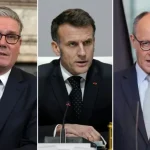
The Chinese government threw the Russian economy an “economic lifeline” in the wake of U.S. and Western sanctions following the Kremlin’s invasion of Ukraine as part of the growing “DragonBear” alliance between Chinese President Xi Jinping and Russian President Vladimir Putin.
Secretary of State Antony Blinken said in an interview over the weekend that the United States has concerns that “China is considering providing lethal support to Russia in its efforts in Ukraine.” It is China’s current economic and financial support that, despite international sanctions and U.S.-led export controls targeting Russia’s key oil and gas industries, has so far kept the Russian economy afloat, thus helping keep the battered Russian military out on the Ukrainian battlefield.
XI JINPING’S MAN IN MOSCOW AND THE DRAGONBEAR ALLIANCE
The U.S.-China Economic and Security Review Commission’s annual report for 2022 noted, “As other markets for Russian exports dry up amid broad-based sanctions on the Russian economy, China continues to provide Moscow with an economic lifeline by increasing its purchases of Russian energy and agricultural goods.”
“China’s rising oil and gas purchases from Russia … have sustained Russian energy export revenues despite international sanctions against Russia for its unprovoked invasion of Ukraine,” the commission said, adding, “Beijing likely sees coordinated sanctions against Russia as an example of potential repercussions for its intensified aggression against Taiwan, driving China to accelerate ongoing efforts to harden its economy against sanctions and undermine the dollar-led financial system.”

Beijing repeatedly fought U.S. and Western efforts to limit Russian oil sales in the wake of the Ukraine invasion. The Group of Seven — Canada, France, Germany, Italy, Japan, the United Kingdom, and the U.S. — declared in September 2022 that it had a “shared commitment to preventing Russia from profiting from its war of aggression.” The G-7 shared its “joint political intention to finalize and implement a comprehensive prohibition of services which enable maritime transportation of Russian-origin crude oil and petroleum products globally,” with such Russian oil purchases only allowable at or below a “price cap.”
Treasury Secretary Janet Yellen said at the time that such a Russian oil price cap would “significantly reduce Russia’s main source of funding for its illegal war.”
Chinese Foreign Ministry spokeswoman Mao Ning made clear Beijing’s opposition to the G-7 efforts: “Oil is a global commodity. Ensuring global energy supply security is vitally important. We hope relevant countries will make constructive efforts to help ease the situation through dialogue and consultation instead of doing the opposite.”
Price caps were set for Russian crude oil in December 2022, and China was again opposed.
“Energy cooperation between China and Russia is always conducted in the spirit of mutual respect and mutual benefit,” she said. “Ensuring global energy supply security is vitally important, and we believe all parties should make constructive efforts for it.”
The G-7, European Union, and Australia set further price caps on Russian oil products in February 2022, arguing that “this decision will hit Russia’s revenues even harder and reduce its ability to wage war in Ukraine.” China continued to convey its opposition — and continued buying up Russian oil.
“Russian crude oil export volumes are not expected to be significantly affected, with Russian trade continuing to be redirected from sanctioning to non-sanctioning countries,” the International Monetary Fund said in January 2023. This was a reference to China and others filling the void.
Russia’s top natural gas producer, Gazprom, said Chinese imports of Russian natural gas had risen at least 50% in 2022, while China’s import of Russian crude oil had expanded at least 10% last year.
It was reported by BNE IntelliNews this month that “trade between Russia and China reached a new all-time high in 2022.”
The Free Russia Foundation reported in January 2023 that “in 2022, China became Russia’s most important trade partner, receiving about 20% of Russia’s total exports and serving as the source of 35% of Russia’s total imports.”
And the Silverado Policy Accelerator reported that month that “a few countries increased exports well above prewar levels, including China” and that “China and Hong Kong have stepped in to fill some of Russia’s demand for integrated circuits.”
“China was both the largest supplier to Russia in October 2022 and the country with the largest year-over-year increase in exports to Russia. While China’s exports to Russia declined in the spring of 2022, they never fell significantly below typical levels and quickly rebounded to near record highs,” the policy institute concluded, adding, “China and several other countries have actually increased their exports to Russia, leading to a recovery in Russia’s overall imports.”
CLICK HERE TO READ MORE FROM THE WASHINGTON EXAMINER
Colin Kahl, the Pentagon’s undersecretary of defense for policy, said in November 2022 that “China views Russia as a counterweight to the United States and to other democratic countries, and Russia, increasingly, has nowhere else to go. I think as a consequence of the sanctions and the export controls, Russia’s dependence on China economically, technologically, and potentially militarily is going to go up.”
Mao said this month that “we always oppose unilateral sanctions and long-arm jurisdiction” and that “China will take all necessary measures to firmly safeguard the legitimate and lawful rights and interests of Chinese companies.”







